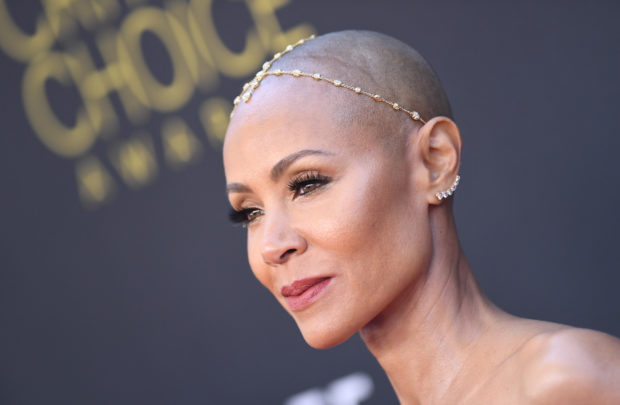US approves first pill for treatment of alopecia

US actress Jada Pinkett Smith arrives for the 27th Annual Critics Choice Awards at the Fairmont Century Plaza hotel in Los Angeles. AFP FILE PHOTO
WASHINGTON—The Food and Drug Administration on Monday approved a drug called baricitinib as the first oral tablet for treating severe alopecia areata, an autoimmune disorder affecting more than 300,000 people in the United States every year.
Alopecia causes either temporary or permanent patchy hair loss that can affect any hair-bearing site of the body, leading to emotional distress. The condition has come to the fore recently through high-profile cases including Hollywood actress Jada Pinkett Smith and congresswoman Ayanna Pressley.
“Access to safe and effective treatment options is crucial for the significant number of Americans affected by severe alopecia,” said FDA official Kendall Marcus in a statement.
“Today’s approval will help fulfill a significant unmet need for patients with severe alopecia areata.”
Baricitinib, which is made by US pharmaceutical company Eli Lilly and known by the trade name Olumiant, belongs to a class of drugs called Janus kinase inhibitors. It works by interfering with the cellular pathway that leads to inflammation.
Its approval for use against alopecia was based on the results of two randomized, controlled clinical trials involving a total 1,200 adults with severe alopecia.
Each trial split participants into three groups: a placebo group, a group that received a two-milligram dose every day, and a group that received a four-milligram dose every day.
After 36 weeks, almost 40 percent of those on the higher dose grew back 80 percent of their scalp hair, compared to around 23 percent of the lower dose group, and five percent of the placebo group.
Around 45 percent of people in the higher dose group also saw significant eyebrow and eyelash regrowth.
The most common side effects included upper respiratory tract infections, headaches, acne, high cholesterol, and increase of an enzyme called creatine phosphokinase.
Prior treatments for alopecia included topical or oral drugs, but these have been considered experimental and none was approved.
Baricitinib was previously approved for treatment of rheumatoid arthritis, and during the Covid pandemic its license was extended to the treatment of hospitalized Covid patients.
RELATED STORIES
Hair loss: Women speak of the pain of going bald
LOOK: Student with suspected alopecia set to graduate from college
The Juans singer Carl Guevarra speaks up on ‘exhaustion, trauma’ of having alopecia
Ryan Agoncillo na-diagnose ng alopecia sa edad 17, nagpaturok ng steroids